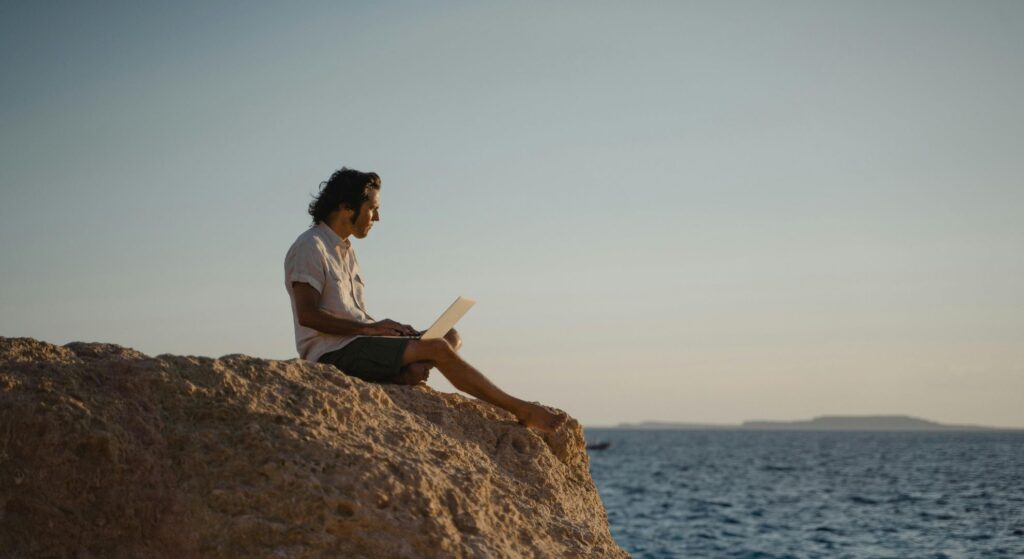In modern society, millennials and Gen Z typically face scrutiny for his or her unconventional lifestyle. Whereas Boomers and Gen X might understand resting when fatigued as an indication of weak point, these youthful generations advocate for a extra balanced and conscious life-style, regardless of dwelling in a world pushed by numerous due dates and deadlines.
This angle can be noticed within the office, the place a number of reviews declare that millennials and people belonging to Era Z are shaping their future. Opposite to the workaholic tradition typically related to earlier generations, millennials and Gen Z worth work-life steadiness as important for general happiness and productiveness.
Simply this month, this idea has been confirmed and backed up as soon as once more with a latest survey by The Harris Ballot in america, which concerned 1,170 American employees from totally different generations.
In it, statistics revealed that out of the full variety of respondents, 78%, largely younger professionals, don’t take their paid time without work (PTO).
Now, whereas it’d look like they’re tirelessly glued to their screens or stationed at their desks, a rising variety of these professionals are literally discreetly taking breaks with out formally tapping into their paid time without work (PTO) or informing their employers, a observe now known as ‘quiet vacationing.’
Libby Roney, Chief Technique Officer on the Harris Ballot, explains that this habits arises from the apprehension and stress felt by millennials and Gen Z. They’ve considerations about being perceived as much less dedicated to their work, probably hindering or jeopardizing their profession development. Consequently, many would choose to sidestep established depart protocols simply to afford themselves the much-needed rest they search.
Actually, this pattern isn’t with out its drawbacks. From strained relationships with supervisors to the detrimental impacts on psychological well being one might face because of the stress of concealing the absence, it’s evident that ‘quiet vacationing’ poses its personal set of struggles.
Nevertheless, regardless of these worries, the rise of it undoubtedly sheds mild on a deeper situation inside the work tradition current to this present day.
The identical survey revealed that almost all of American employees are experiencing a shift the place the boundaries between work and private life aren’t as clear-cut as they as soon as have been. That is largely because of the pervasive presence of expertise, which creates an expectation to at all times be obtainable and productive, other than the assumption that “America has a tradition that glorifies being busy.”
Regrettably, this incidence isn’t confined to the margins of American society. Within the Philippines, there was a longstanding clamor for attaining a more healthy life-work steadiness. A placing demonstration of this may be seen within the information from Cerebo, which highlights that academics within the Philippines spend at the least 400 hours yearly outdoors their compensated working hours.
“This staggering workload takes a toll on their private lives, well-being, and talent to offer high quality training. It’s important to make clear this continual drawback, and urgently work in the direction of discovering options that may empower our academics to create the very best studying experiences for our college students,” mentioned Justine Itugot, Founder and CEO of Cerebro.
Contemplating all these, there’s a want to handle the challenges posed by the prevalence of ‘quiet vacationing’ and the blurred boundaries between work and private life now greater than ever. One answer is to supply longer breaks or days off to staff. As an alternative of relying solely on a conventional trip interval that ranges from 11 to twenty days, firms can present alternatives for prolonged leaves, much like these mandated by regulations in lots of European international locations.
One other method is to discover different work schedules, corresponding to a four-day workweek. A 2023 pilot study carried out by The Day Week International examined the influence of this technique on a number of international locations, together with the UK, Spain, and Portugal, amongst others. Findings revealed that spending decreased days at work improves the general psychological and bodily well being of staff. This setup additionally permits them to allocate extra time to spend with their family members.
To conclude, acknowledging the continued challenges surrounding these points is important; but, it additionally serves as a reminder of the work that lies forward. Nevertheless, with continued help from stakeholders and lively engagement from all events concerned, progress in the direction of shaping a future the place the welfare of every individual is esteemed and given priority, each inside the office and past, might not stay a legend however as a actuality through which we’re all part of.
Different POP! tales that you just would possibly like:
Tech CEO believes ‘ache and struggling’ domesticate greatness
[Commentary] ‘Display screen to Senate’: Why do Filipinos love celebrities in politics?
Commentary: May it’s time for a neighborhood ‘digitine’ motion?
Some Filipinos will scream ‘Filipino satisfaction’ it doesn’t matter what, even when improper


